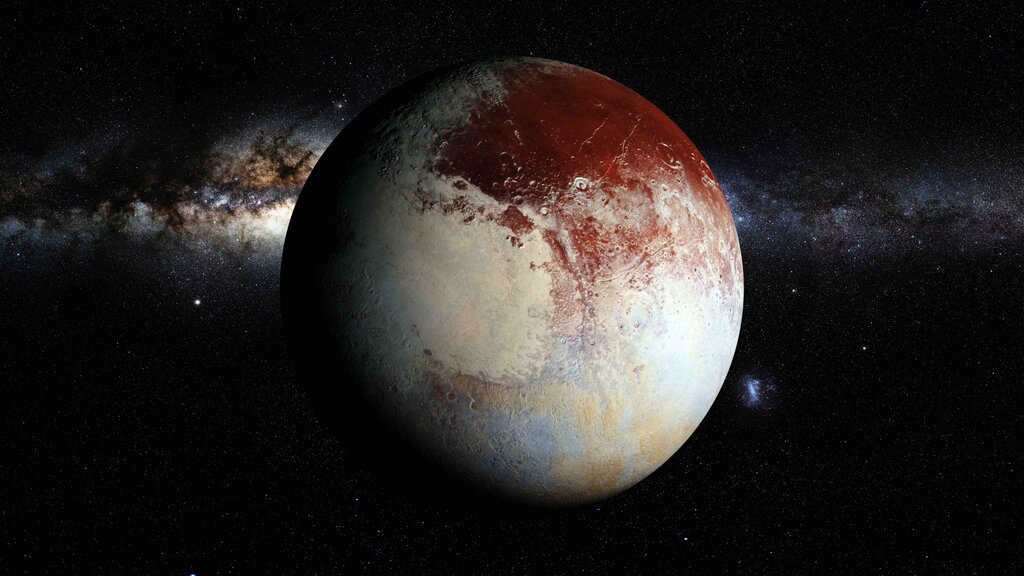
From treason to the release of the World Wide Web, August 23rd is simply a day full of surprises. This day is also the day we dismissed Pluto as a planet, as well as how the psychology term “Stockholm Syndrome” was coined. Join us as we find out more about all that went down in history on August 23rd.
Historical Events
1305: Scottish knight William Wallace, one of the greatest warriors in ever lived, was executed for treason against the English king Edward I in the late 14th century. He was hung, drawn, and quartered. His execution became a symbol of Scottish resistance against English rule and he is still regarded as a national hero in Scotland today.
1948: The World Council of Churches (WCC) was founded with 147 churches from 44 countries coming together to promote unity among Christian denominations and advocate for social justice and peace. The WCC is based in Geneva, Switzerland, and has over 340 member churches representing over 500 million Christians worldwide.
1973: A bank robbery-turned-hostage crisis in Stockholm resulted in the widely known term “Stockholm Syndrome. The event lasted for five days. Over the course of the days, the hostages began to form a bond with their captors, even defending them when police attempted to storm the bank. This psychological phenomenon came to be known as “Stockholm syndrome.

Scientific Breakthroughs
1924: Earth and Mars converged towards one another and came to a close encounter and were approximately 34.8 miles apart.
1991: The World Wide Web was made available to the public, forever changing the way we communicate, work, and access information. It was developed by British computer scientist Sir Tim Berners-Lee while he was working at CERN, the European Organization for Nuclear Research. The web, for short, is part of the Internet.
2006: The International Astronomical Union (IAU) declared that Pluto would no longer be considered a full planet, but rather a “dwarf planet”. This decision was based on new criteria established by the IAU for what constitutes a planet, which required a celestial body to meet three conditions: it must orbit the sun, it must be large enough to have a nearly round shape, and it must have cleared its orbit of other debris.

Political Milestones
1775: King George III of Great Britain delivered a proclamation to the Court of St. James’s, stating that the American colonies had proceeded to a state of open and avowed rebellion. The proclamation, also known as the “Proclamation of Rebellion,” was a response to the growing unrest in the American colonies. The proclamation further inflamed tensions between the American colonies and Great Britain, ultimately leading to the American Revolutionary War.
1990: Armenia declared its independence from the Soviet Union, becoming the first Soviet republic to do so. The Declaration of Independence was not immediately recognized by the Soviet Union until September 21. This historic moment marked the end of over 70 years of Soviet rule in Armenia.

Cultural Events
1965: The American musical film “The Sound of Music” was released, starring Julie Andrews and Christopher Plummer. The film was a critical and commercial success, winning five Academy Awards, including Best Picture, Best Director, and Best Sound. It became the highest-grossing film of the year and is still beloved today for its timeless songs and charming performances.

Notable Birthdays
- Louis XVI of France (1754–1793) – The last King of France before the French Revolution and was executed by guillotine on January 21, 1793, at the age of 38.
- Ernie Bushmiller (1905–1982) – An American cartoonist who created the “Nancy” comic strip. Bushmiller worked on the strip until his death in 1982 and was known for his distinctive drawing style and dry humor.
- Gene Kelly (1912–1996) – An American actor, singer, dancer, director, and choreographer. He is best known for his roles in classic Hollywood musical films such as “Singin’ in the Rain” and “An American in Paris.
- Tex Williams (1917–1985) – An American singer-songwriter who popularized the Western swing genre of country music that would go on to be the accompaniment for the popular type of ballroom dance, swing.
- Sonny Jurgensen (1934) – An American football quarterback who played for the Philadelphia Eagles and the Washington Redskins in the NFL.
- Keith Moon (1946–1978) – A English drummer best known for his work with the rock band The Who.
- Rick Springfield (1949) – An Australian-American singer-songwriter and actor best known for his hit song “Jessie’s Girl.
- Jay Mohr (1970) – An American actor, screenwriter, comedian, and radio host who has appeared in films such as “Jerry Maguire” and “Picture Perfect”.
- Ray Park (1974) – A Scottish actor and stuntman best known for his roles as Darth Maul in “Star Wars: Episode I – The Phantom Menace” and Snake Eyes in “G.I. Joe: The Rise of Cobra”.
- Kobe Bryant (1978–2020) – An American basketball player who played for the Los Angeles Lakers in the NBA. He and his oldest daughter died in a helicopter crash on January 26, 2020.
Final Word
These are just a few of the significant events that happened on August 23rd throughout history. We mourn the death of a beloved basketball player and human, but we also celebrate the breakthrough of the world wide web and the independence of countries. August 23rd is and will be a notable anniversary.
Was this page helpful?
Our commitment to delivering trustworthy and engaging content is at the heart of what we do. Each fact on our site is contributed by real users like you, bringing a wealth of diverse insights and information. To ensure the highest standards of accuracy and reliability, our dedicated editors meticulously review each submission. This process guarantees that the facts we share are not only fascinating but also credible. Trust in our commitment to quality and authenticity as you explore and learn with us.


